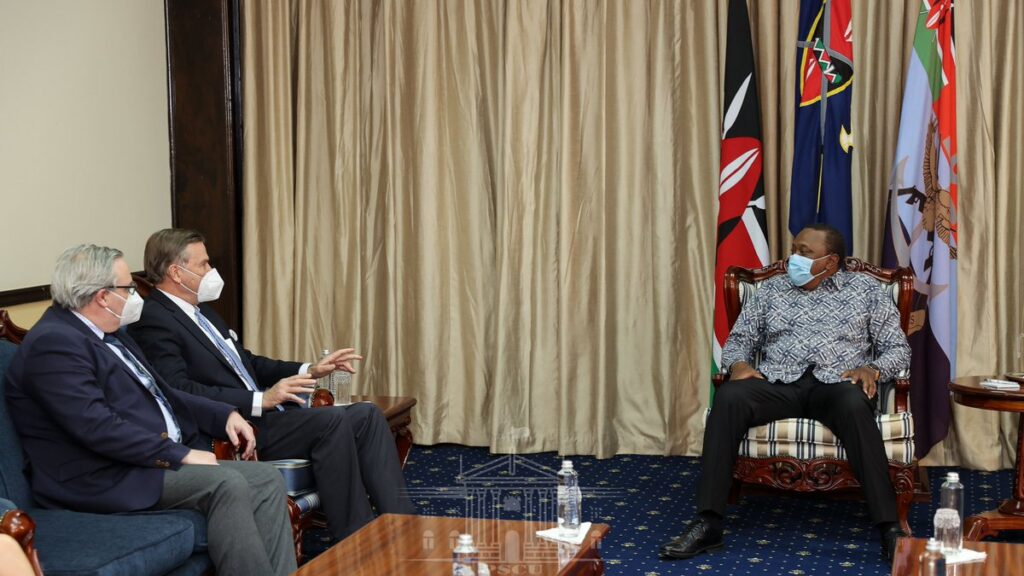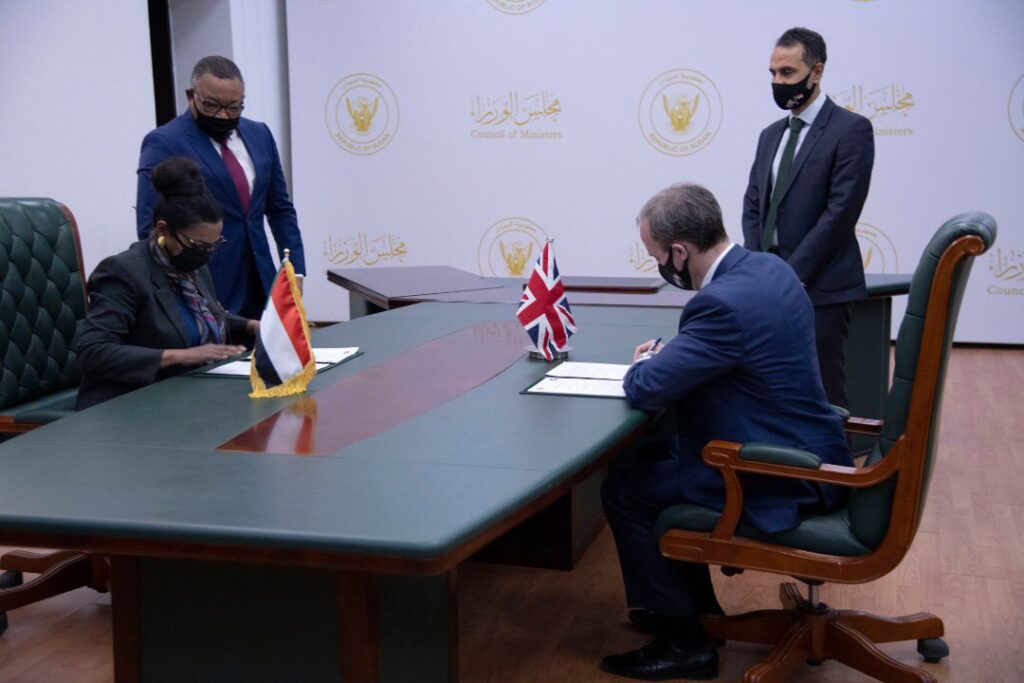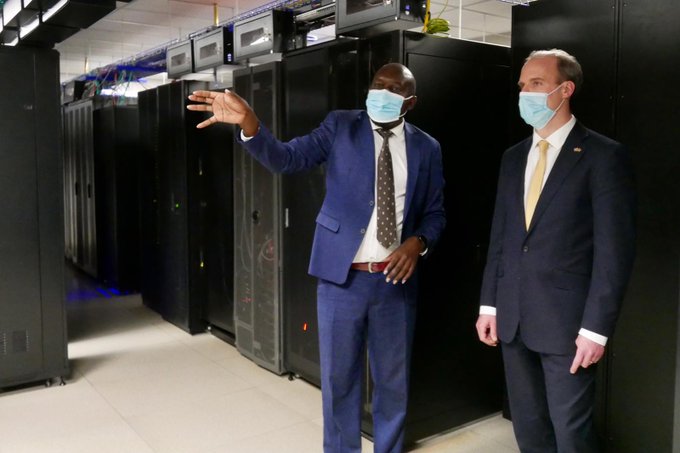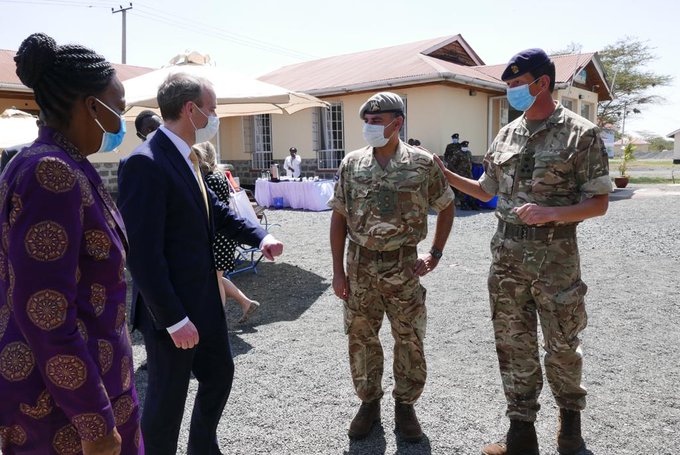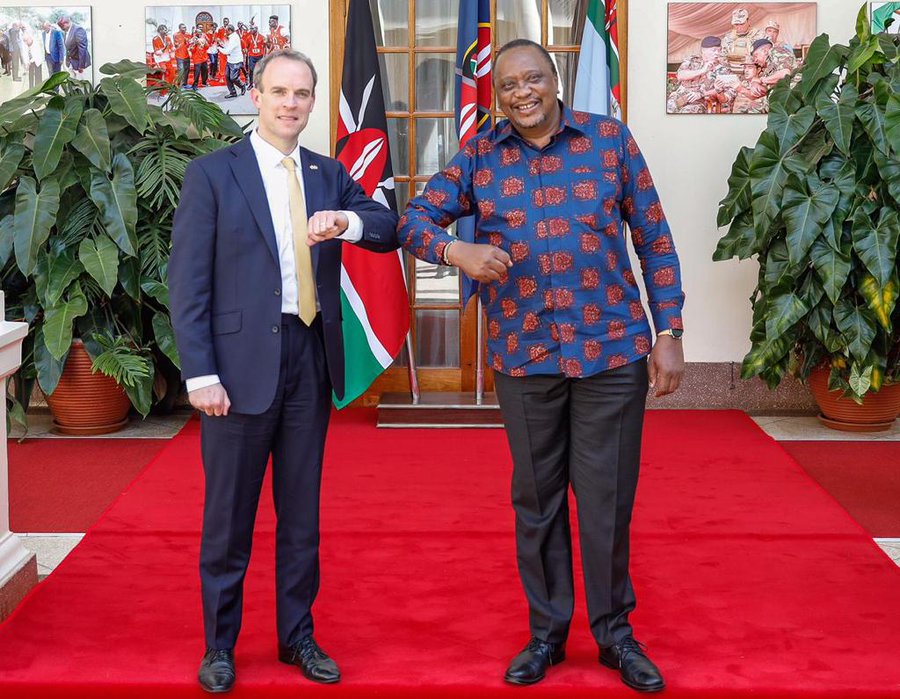THE AFRICA BAZAAR STAFF
February 1, 2021
The United Kingdom government has pledged £418 million ($571.16 million) in investment and grants to Sudan and Kenya, as part of its continued efforts to grow and strengthen economic and diplomatic ties with African nations.
The pledge, which was announced by U.K. First Secretary of State and Foreign Secretary Dominic Raab late last month during his three-nation tour across Ethiopia, Kenya and Sudan in sub Saharan Africa, will help the countries with their climate change adaptations, food security and debt relief.
During his trip across the three nations, Raab met and engaged in discussions with high level government leaders, civil society and military leaders on mutual and regional issues such as socioeconomic investment, terrorism and security, food insecurity, climate change and youth empowerment.
Raab’s first stop on the tour was in Kenya where he paid a visit to President Uhuru Kenyatta at the Presidential Palace in Nairobi. The two leaders discussed mutual agenda, including bilateral trade, regional security, climate change and education. Kenya is strategic regional partner and long-term ally of the British government.
Late last year, the two countries signed a new trade treaty, the U.K.-Kenya Economic Partnership Agreement to bolster trade and economic ties. “President Kenyatta and I discussed how we can deepen our ties on trade, security, girls’ education and climate change,” Raab said. The new trade treaty went into effect Jan. 1.
Raab’s trip to Nairobi also covered a range of activities including visits to Liquid Telecom—a data center located in city and Kenya Medical Research Institute—a research and development facility working on COVID-19 vaccines in partnership with the U.K.-based Oxford Vaccine Group. Before departing the country, he met with British soldiers who are working with Kenya Defense Forces at a counter-IED training center in Nairobi on counterterrorism efforts.
At the Liquid Telecom data center, Raab announced the British government plans to invest £48 million ($65.59 million) in clean energy, transportations and climate risks financing to help developing countries cope with climate adaptation.
As current head of the United Nations Climate Change Conference (COP26), the U.K. is scheduled to host a conference on climate change in Glasgow later this year.
“Kenya is a key partner in the fight against climate change. The new partnership between UK’s Oxford Vaccine Group and Kenya Medical Research Institute helps share expertise and support vaccine rollout that will keep us all safe,” said Raab. “This is just one of the ways the U.K. is working with African countries.”
Raab’s next stop on the trip was in Khartoum, Sudan, which, given the combined historic visit and the significant political transition to a democratic society that is taking place in the Northeastern African nation at the moment, can be described as the hallmark of the entire three-African-nation tour.
His visit to Khartoum marks an historic moment for the U.K-Sudan relations and comes as Sudan navigates path toward democracy. In Sudan, Raab was the U.K. leader in over a decade to visit the country and hold a mutual interest dialogue with the Sudanese government, underscoring a new path forward in the relationship and role between the two nations.
The British Foreign Secretary met with the Sudanese civilian transitional government—Prime Minister Abdalla Hamdok, Foreign Minister Gamreddin, and Finance Minister Hiba Mohamed and signed a £40 million ($54.66 million) Memorandum of Understanding to help support the Sudan Family Support Program through the World Food Program in Khartoum and a£330 million ($450.91 million) for a bridge loan aimed at kick-starting Sudan’s path to debt relief once its arrears with the African Development Bank and other banks have been cleared.
“NGOs play a vital role delivering services to millions of vulnerable people across South Sudan. I had a good first meeting to discuss the humanitarian situation, impacts of conflict and support,” Raab stated.
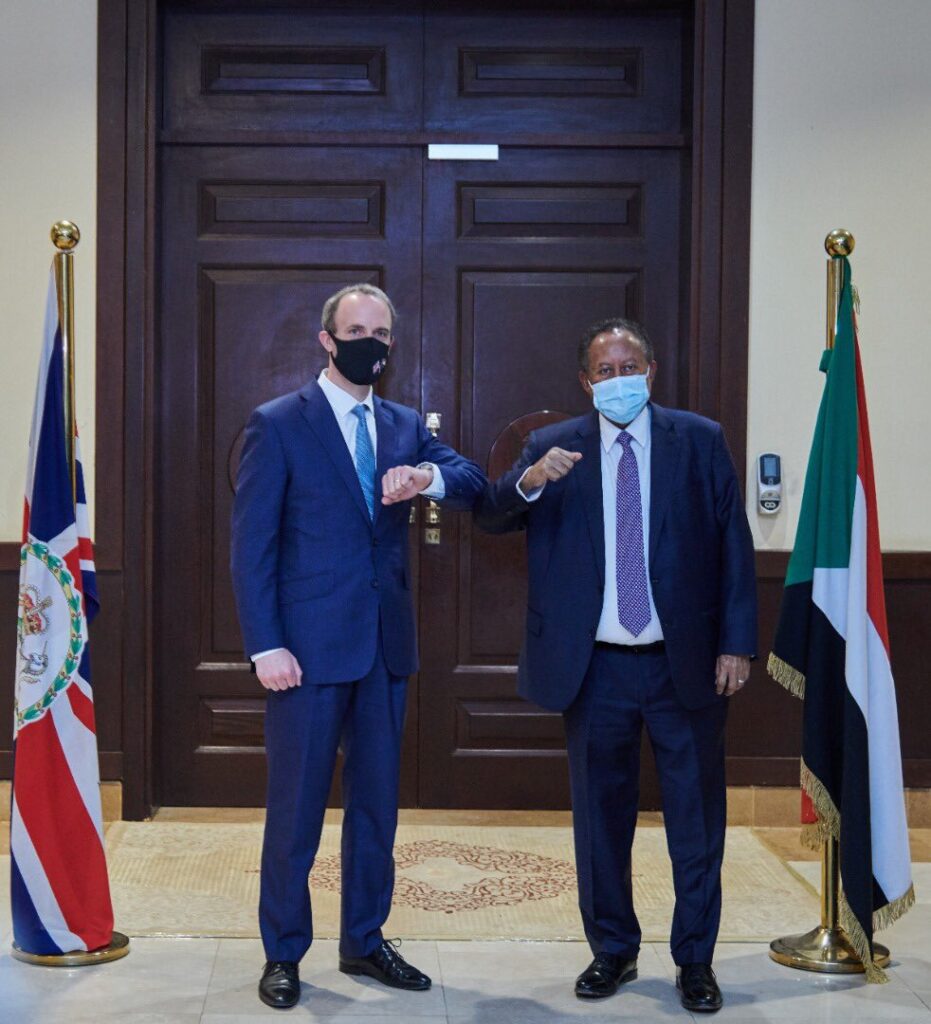
Sudan’s Prime Minister Abdalla Hamdok
Raab, who also met with Chairman of the Sovereign Council Lt. Gen Abdel Fattah Al-Burhan to discuss progress in delivering key reforms including economic reforms for the Sudanese people, the nation’s democratic transition and cooperation with the International Criminal Court, said the U.K. plans to use its presidency at the United Nations Security Council this month to drive discussions on the most critical global problems facing the world in 2021, including COVID-19, climate change, and conflict resolutions.
“No single country can address these issues alone,” noted Raab. “We will use our leadership of the G7 alongside our UNSC and COP26 presidencies to bring countries together to tackle the unprecedented challenges we face globally.”
During his meeting with members of the Sudanese civil society that are working on getting justice for victims of humanitarian atrocities committed by the country’s former leader Omar Al-Bashir, Raab said, “the U.K. stands steadfast in our support for the Sudanese people on this journey” to pursue justice for the victims.
Raab’s historic visit is part of the U.K’s. efforts to show support for Sudan and the civilian government’s efforts to ensure a successful transition to democracy. His visit comes on the heels of a similar historic visit by a U.S. government delegation led by then Treasury Secretary Steven Mnuchin earlier last month.
The International Monetary Fund Managing Director Kristalina Georgieva told the Africa Bazaar magazine last month that the financial institution is working with the Sudanese government to help clear arrears. She added that the U.S. and U.K. governments have pledged to provide financial support to Sudan for a debt relief program under the Heavily Indebted Poor Countries program.
Wrapping up his trip to Africa, Raab met with Ethiopian Prime Minister Abiy Ahmed in Addis Ababa, the nation’s capital for a dialogue on regional security, investment, COVID-19 and climate change. The two leaders also held constructive discussions on the ongoing situation in Tigray and the need for political dialogue to bring a lasting peace.
While in Ethiopia, Raab signed a climate partnership with Ethiopia’s Deputy Prime Minister and Minister of Foreign Affairs Demeke Mekonnen. “African leadership will be key to a successful outcome and bright green future,” Raab stated. “Ethiopia continues to be at the forefront of Africa’s environmental leadership.”
The U.K. takes over the G7 presidency at an unprecedented times. Raab said U.K.’s priorities for the G7 includes a Build Back Better from coronavirus agenda, champion action on climate change and girls’ education, promote open societies, shared values and human rights.
ADVERTISEMENT

